After spending months with painted hands, grouted fingerprints and with the fresh smell of paint thinners in the morning, it has been so nice to get my hands dirty in soil for a change.
Thanks to Ana bumping into the Cow King while out walking Simon & Garfunkel, we received an exclusive invitation to his vegetable garden just in time for harvest.
Our friendly straight-talking farming neighbour Antonio Oliveira inspired us with giant onions, amazed us with gigantic squashes and overwhelmed us with basket-loads of fresh and fabulous fruit and veg for our table.
His citrus grove and avocado tree are overloaded with ripening fruit, but there is already a carpet of juicy red tomatoes, the melons are large and sweet, and his green peppers are off the scale.
Move along spray-painting, there’s a new challenge in town and we’ve already had our first lesson in the magic of green bean planting.
Thanks to that, the penny dropped: we need help.
We need people to come and stay with us in exchange for skills, knowledge, experience and work.
We need you, we need your talented friends and we have a plan which we’re unveiling today – with a dramatic flourish.
Call it a call to arms, for arms (if you will) or call it a “work exchange programme”: come and stay in our fancy new guesthouse for free…in exchange for 25 hours of work in a week.
Click here to read more and apply, or go to our Facebook page or website for the pdf that explains it all. And please spread the word far and wide in your networks!
And speaking of the guesthouse…our work here is done.
Forever consigned to the annals of history are the nicotine coloured walls, the 1980s pizzeria tile kitchen and the offensive orange barra borders on the casa’s collars and cuffs.
As much as we like the traditional and typical bright blue and yellow décor on houses in quaint Portuguese towns it’s more of a distraction out here.
“Orange?” as Ana puts it, “I love it on a dress, but on a house amid calm countryside colours? A clean white with subtle olive shutters – now that’s restful.”
Strangely, I still have some off-white car paint on my big toe…the very same shade Ana chose for the furniture re-spray.
That wasn’t the original plan: our mission kept on creeping, but now the chairs are a beautiful matt, the tables a glossy olive and the spray painting compressor packed and ready to be returned to Richard…about three months after he said “that’s about two weeks of work.”
Maybe if I’d done it in one go, or had been better at it, or didn’t keep adding to the workload with new items to spray he would have been right, but at least I now have a little window into the mystical and magical world of car paint-spraying.
After being all pleased with my advanced self when friends in the know said “wow, spray painting,” I am now pleased it’s over…for the time being at least.
They say wow for a reason: it’s hard, unpredictable, time consuming, fiddly and messy work…and it doesn’t always come out the way you’d like first time.
But it does look beautiful and now, finally, the guesthouse is done, over, finished, ready, com-plee-ted.
The i-s in electrical are dotted and the t-s in mosquito screens are crossed; the details are detailed and the scaffolding is back in storage (albeit not for long as the main house is next on the painting & decorating list).
There are still a few furniture conundrums to conquer and the winter heaters to install, but it looks brand spanking new and brilliant, and all ready for a cohort of volunteers to move in.
The little things take so long. Take the electrical sockets for example…how easy should it be to repair or replace a few cracked switches and the odd wobbly socket? Ages.
And the irrigation system? We have lemons and limes, oranges and tangerines pleading for water, but I can’t just get a guy in.
Hours of fiddling, a new pump, more fiddling and a complete disassembly later and it looks like the pressure switch is broken. One for Monday. Hours of my life I will never get back.
Joep does his own sewerage systems, Radi removed his roof in a week and Niels invents things…I can’t even fix a pesky pump!
(Or maybe I can…let’s see how Monday goes).
Hence the relief at having a little farming lesson from Antonio Oliveira’s cousin Mario.
There’s something so calming about watching, learning, being told what to do…and then being told again how to do it properly when I’m doing it wrong.
The mission was planting feijão verde (green beans), and we’d seen the process start that morning with a tractor and a plough.
Next came a petrol-driven foot remover – imagine a powerful lawnmower with an exposed wheel of spinning metal spikes – which can also be used to break the soil clarts into finer clumps.
After a dust cloud of acceleration and a warning about metal-capped shoes, it was time to peg out some sticks for the narrow drip irrigation pipe to pin to, dig out the shovel and put our backs into it.
I suppose it was more of a traditional hoe than a straight shovel and Mario showed us the best trench-making technique before flooding it and damming it in two or three metre sections to soak the water properly down into the soil.
No need to do this in the winter, we were told, but where planting is done almost all year round this is the summer knack for those in the know.
Then came the estrume – the cow dung based compost to line the trench and be turned into the wet earth before three or four bean seeds were dropped every 30cms and the excess soil raked on top.
Books are one thing, but local knowledge is the only way to grow such amazing fruit and vegetables.
While the Inuit (and the Swedes) have many words for different kinds of snow, I do love the Portuguese melon words: melão (melon), melôa (honeydew) and melancia (watermelon).
Then there’s the melon plant meloeiro.
For most fruit trees you just add -eira or -eiro (m/f) to the end: think pereira (pear tree), limoeiro (lemon tree), limeira (lime tree) and cerejeira (cherry tree etc).
Tia Maria-João, our resident go-to Portuguese linguistics expert explained melão is also “the facial expression that you get when you’re scolded or when a situation goes badly against your expectations.”
Something akin to having a face like a slapped arse: Ao ouvir Inglaterra perder a Six Nations, o Alastair ficou com um melão.
The little dabble in farming was hugely satisfying work and inspired us to start thinking about our garden…about our pathetic little melons planted too late without manure or proper irrigation.
We need to know so much more, and it’s best learning by doing. I hope to become a regular fixture in Oliveira’s allotment…and he seemed keen for the extra pair of hands.
We also need people to come and help us. Have I mentioned that already?
Already struggling under the weight of a metric tonne of our own table grapes (I guess we did something right by pruning them this year) what does one do with all that fruit and veg?
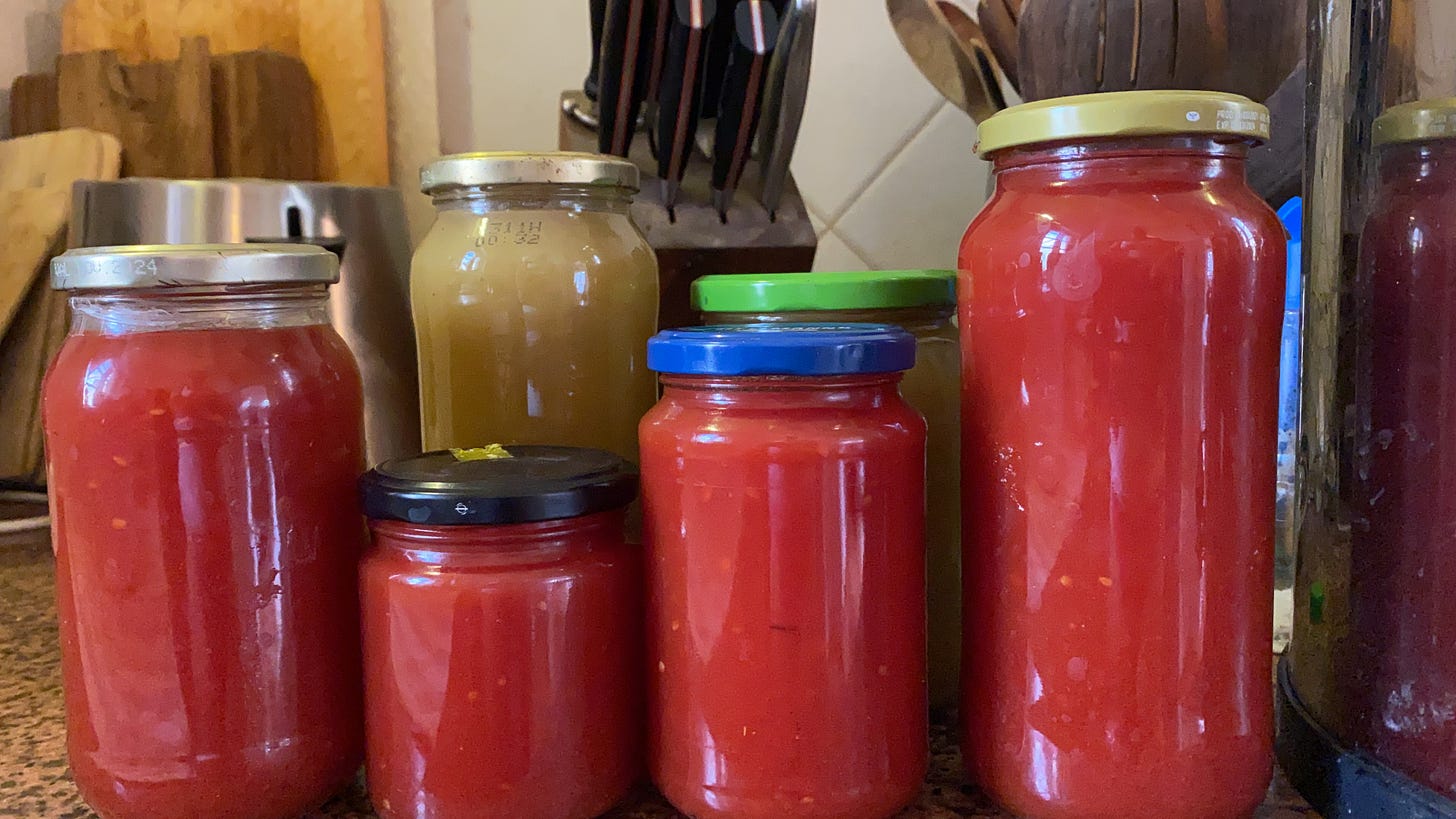
Over to Ana: tomato jam, apple sauce, amazing fresh tomato salads, tomato soup, salmon and sautéed courgettes, pissaladière (thanks Mireille)…and half a melon each a day for dessert.
It’s a start, but to be honest it’s barely dented the Cow King’s produce-mountain. It is, however, a creative challenge we are willing to accept.
With f-loads of figs to pick today thanks to Firle; a mass of ripening marmelos (quick-growing quince); and bulging bramble bushes, we will have to invest in a chest freezer just to illiterate our way through the winter.

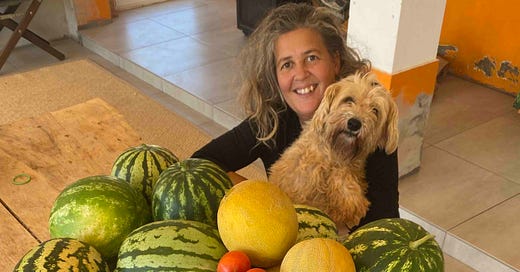



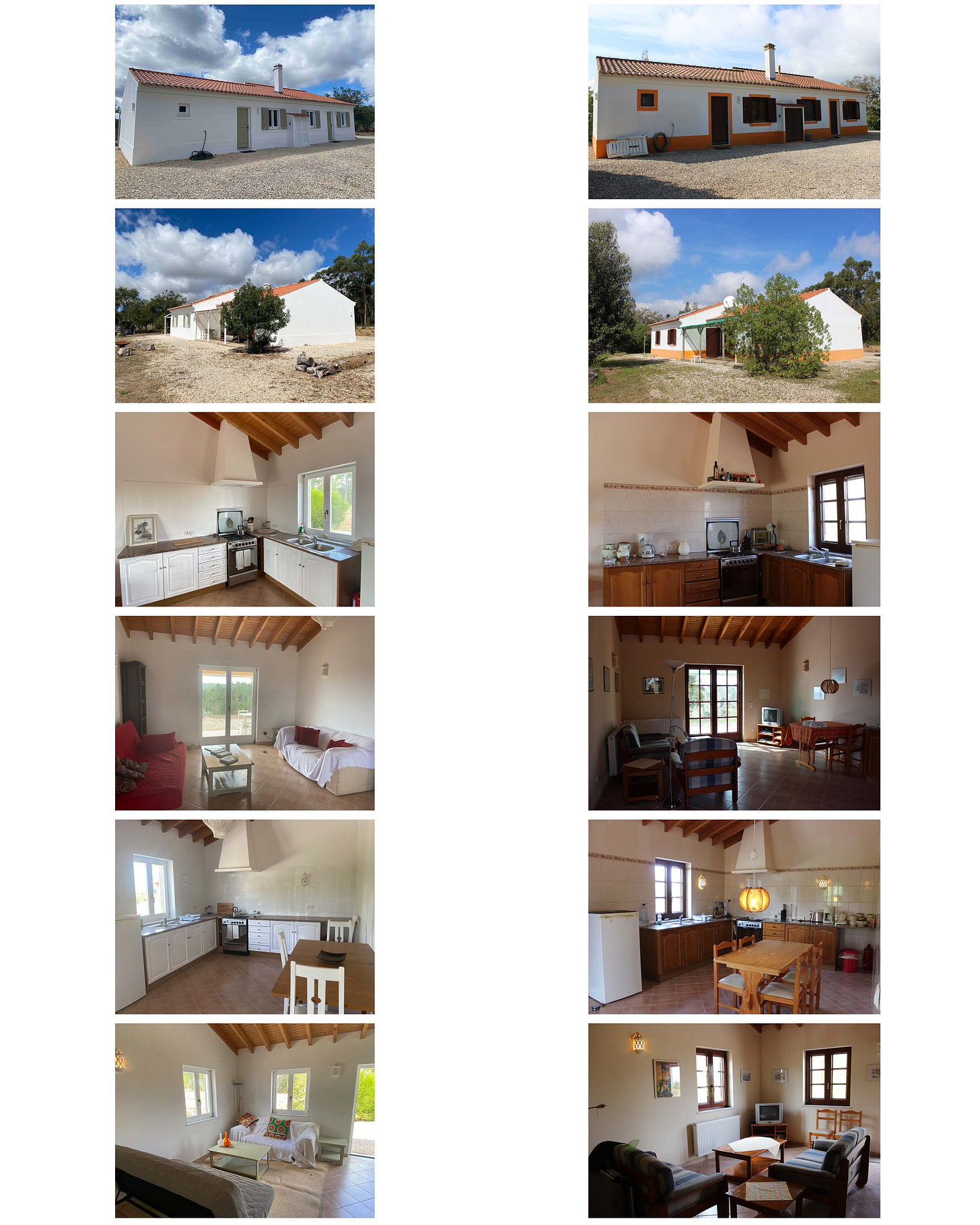
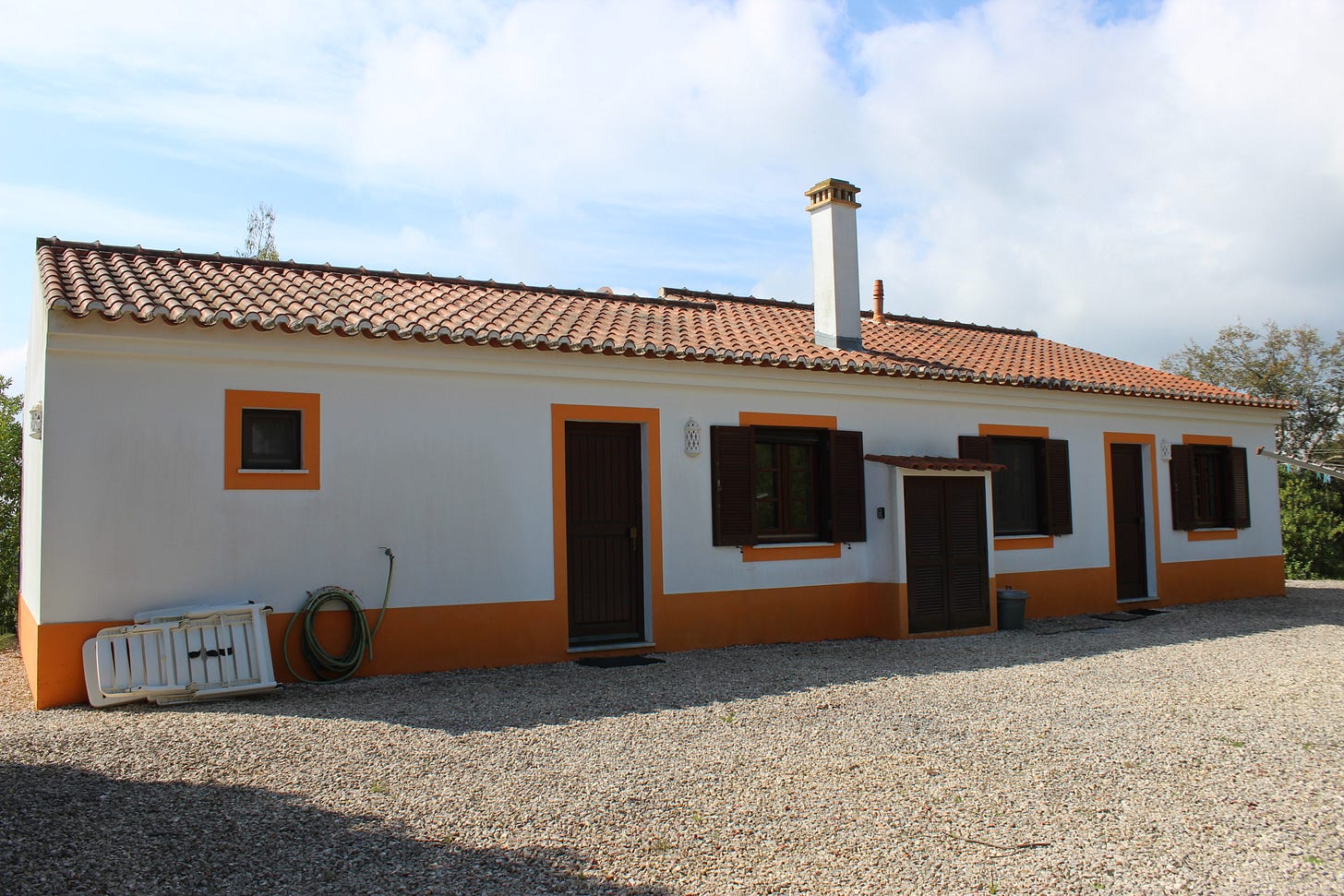
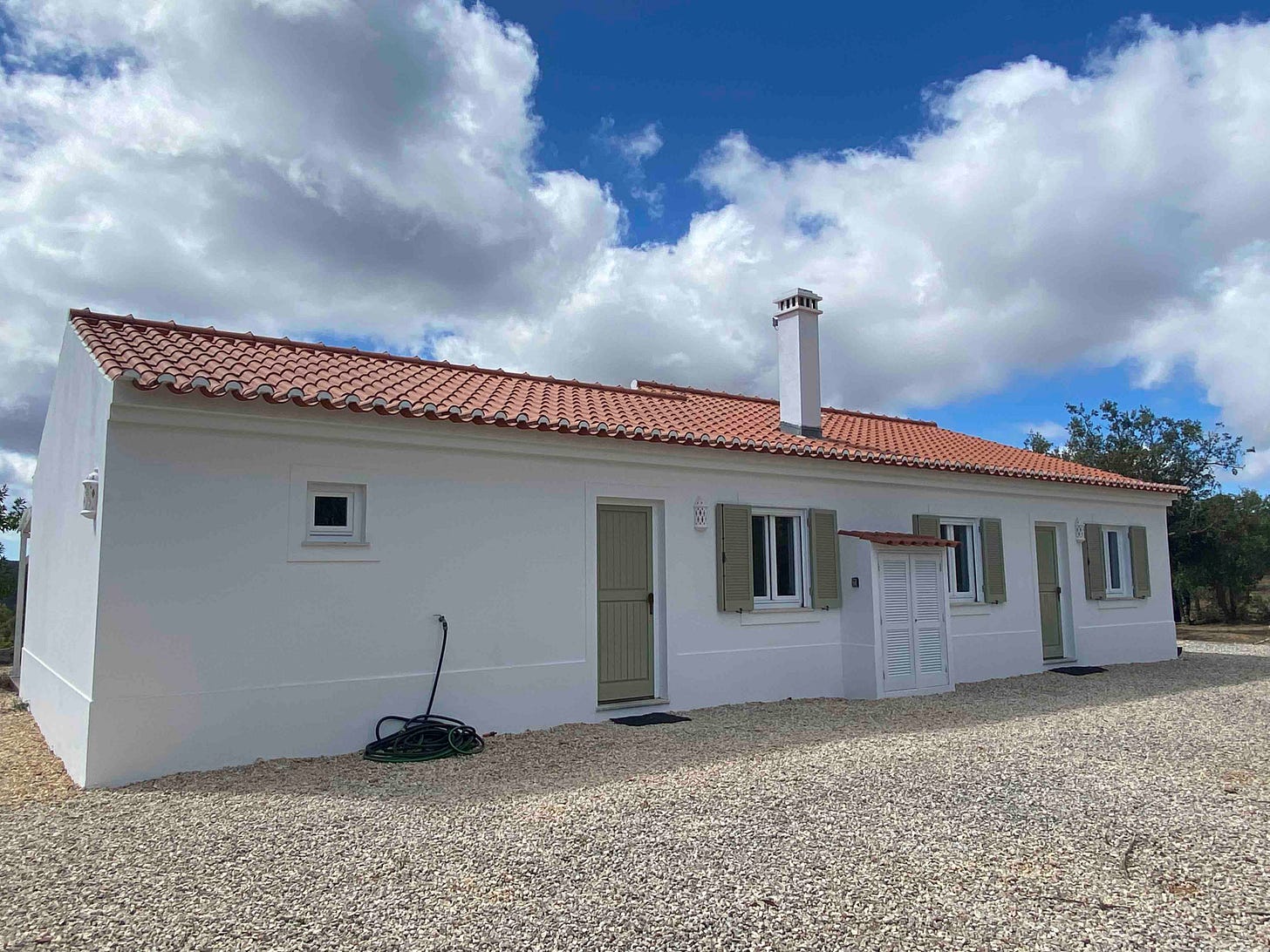
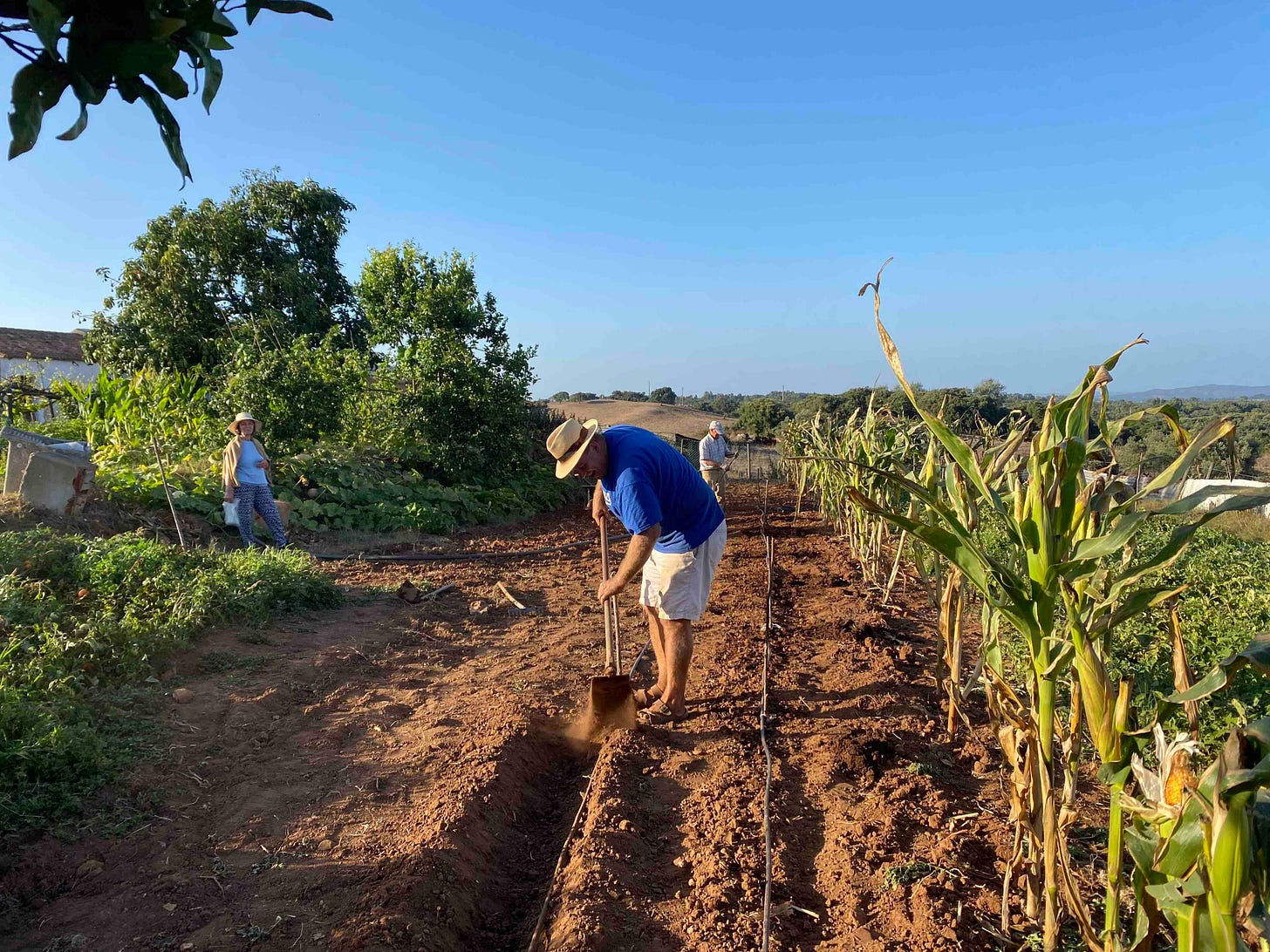
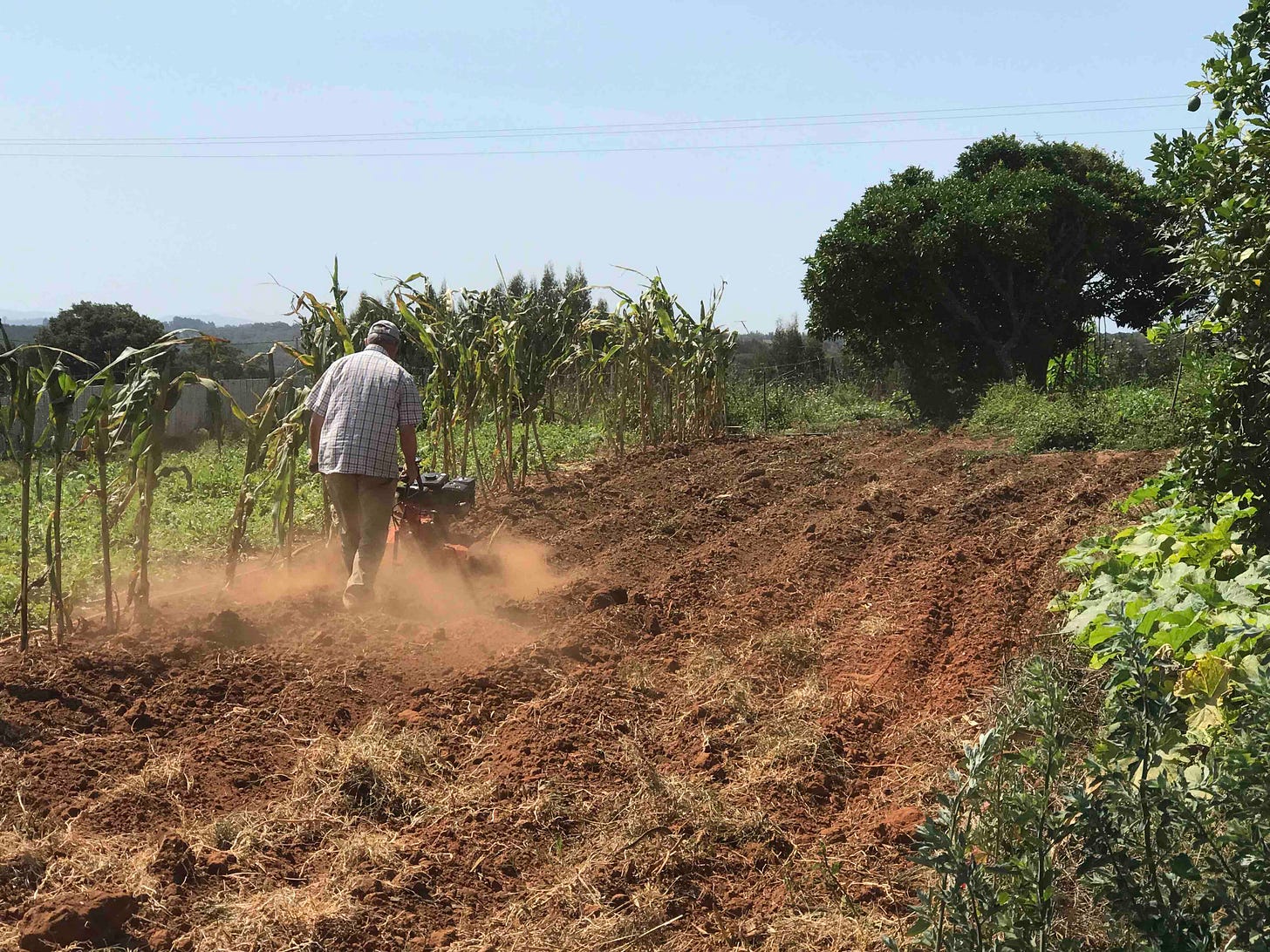
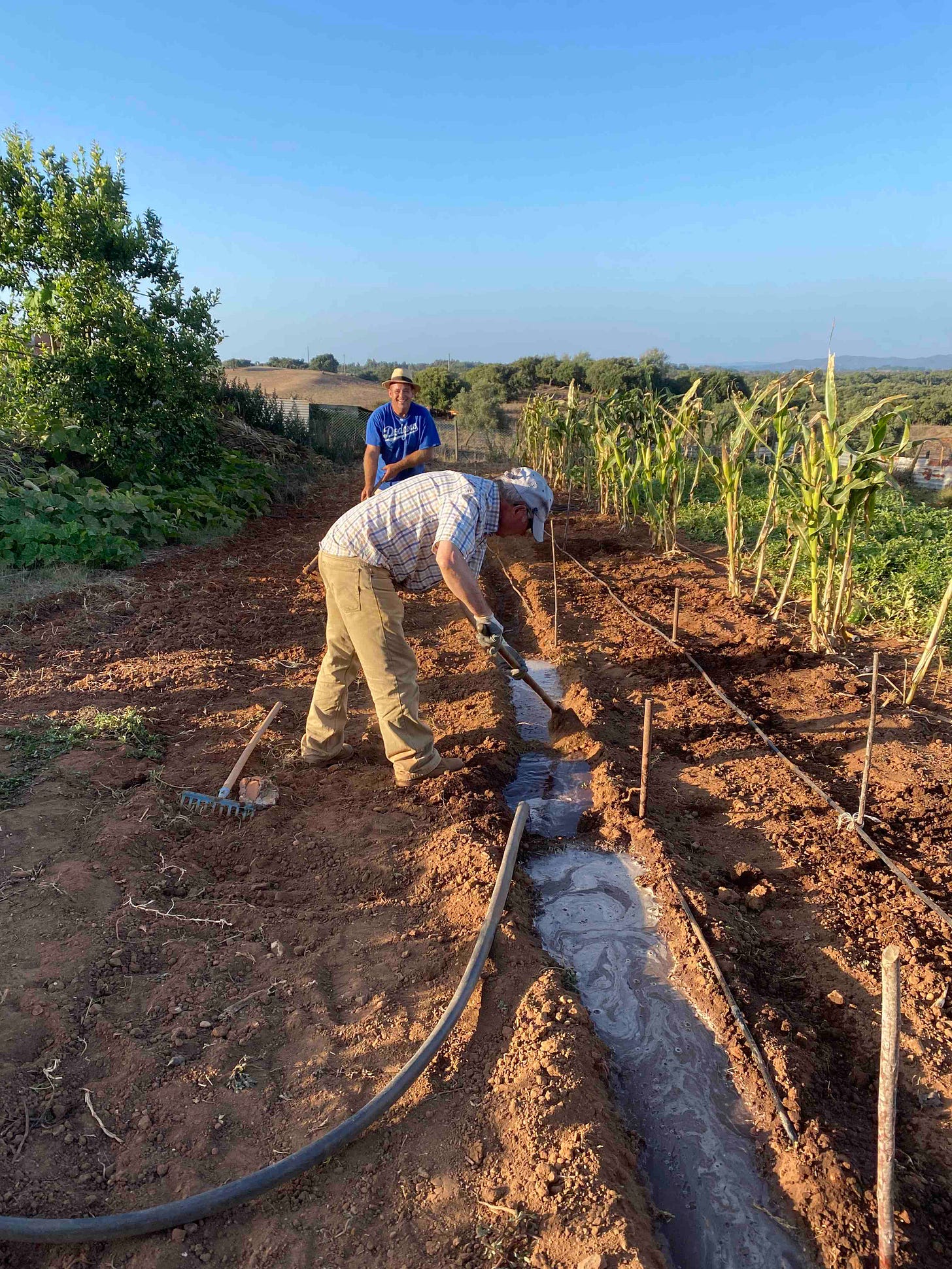
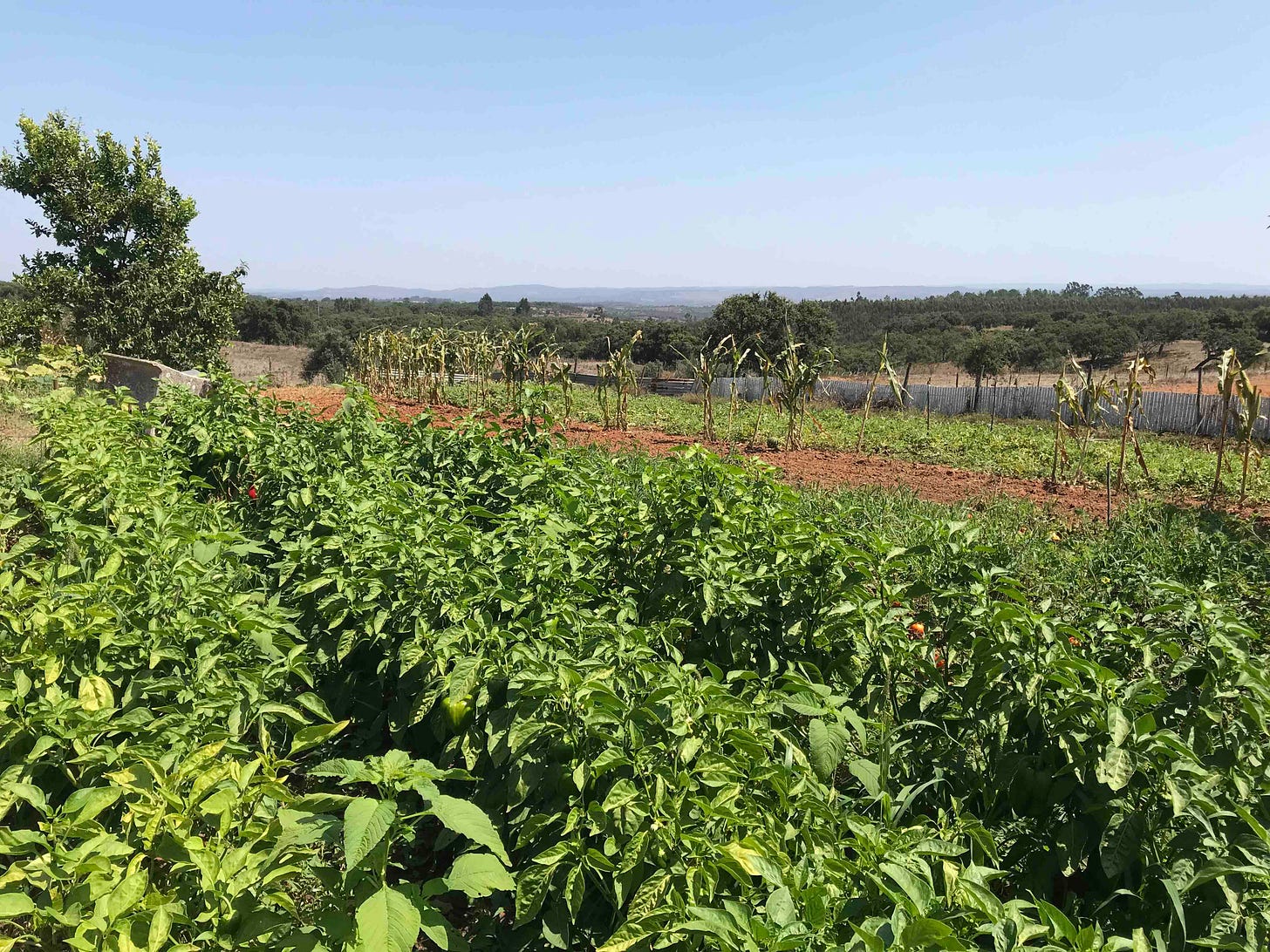
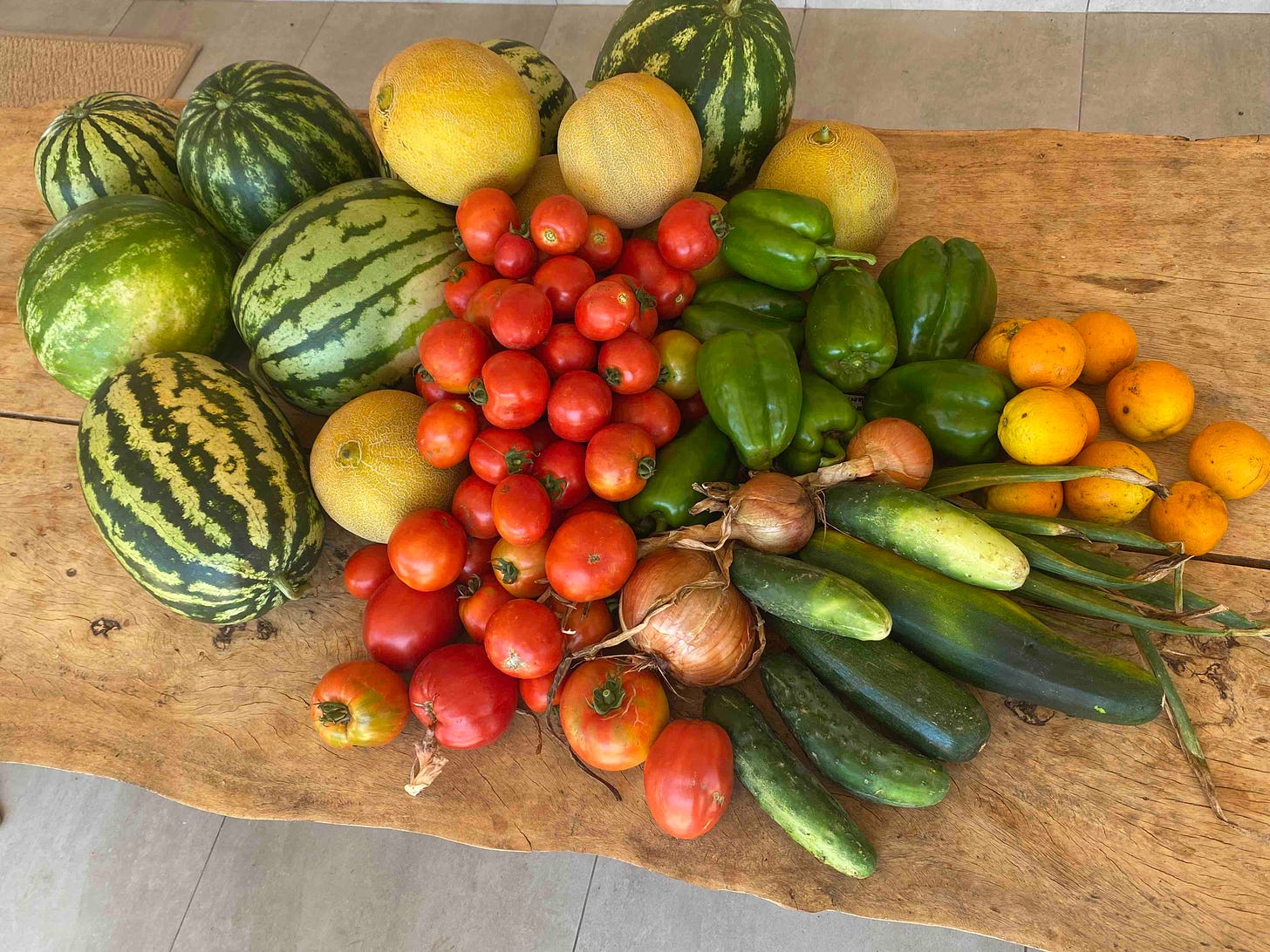
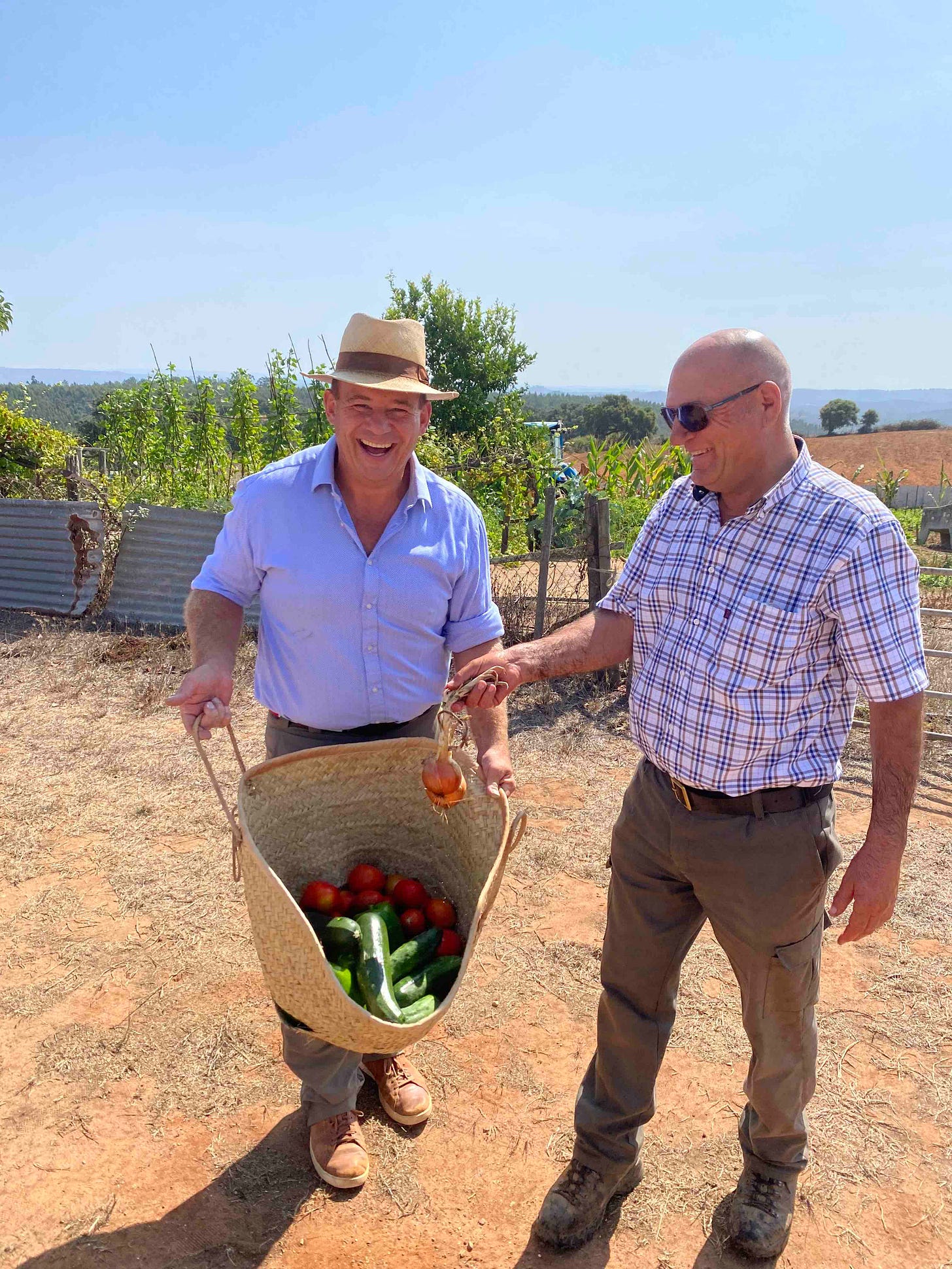
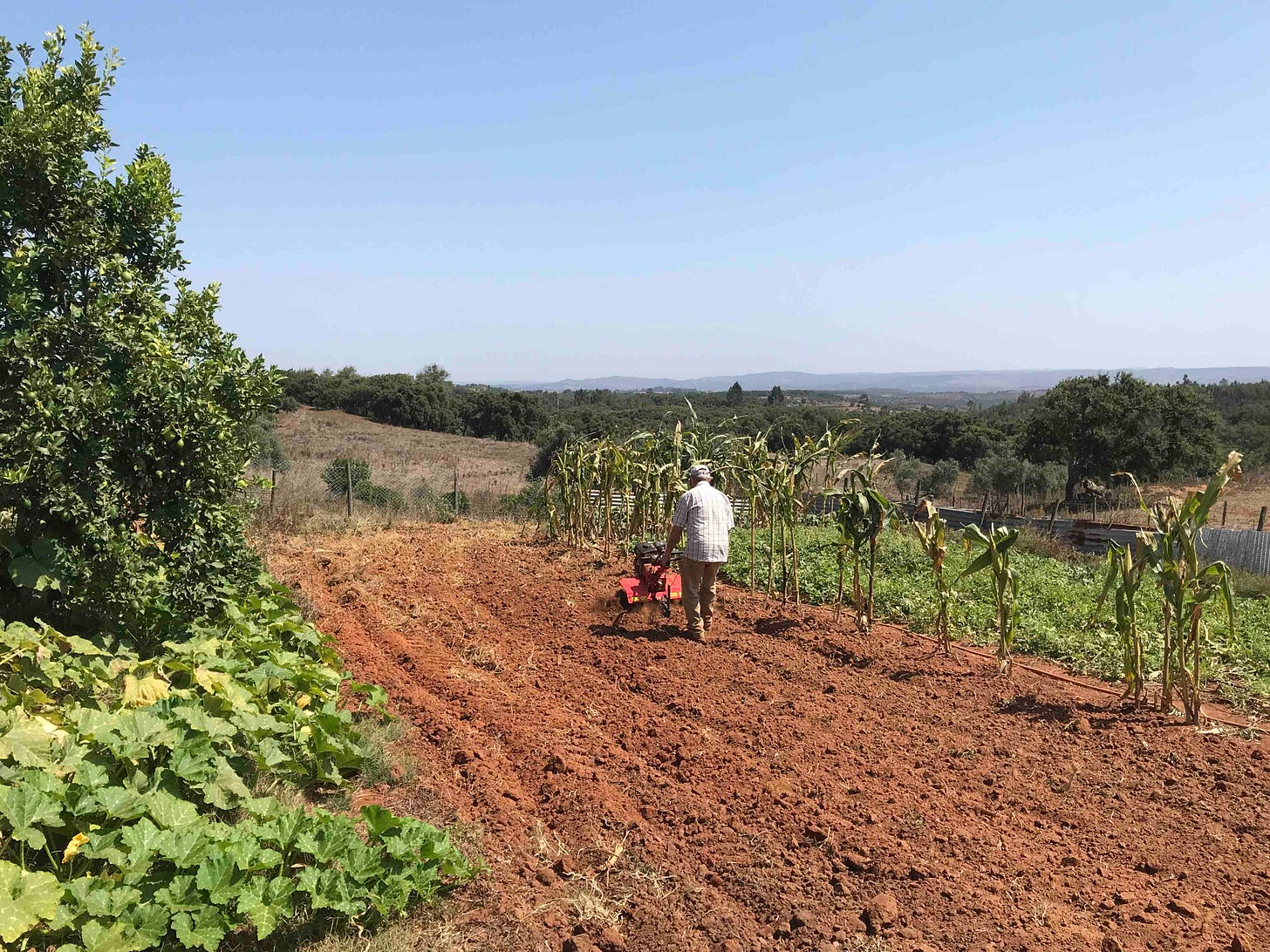
Amazing. Sure you don't need an off duty aid worker for 25 hours a week?!